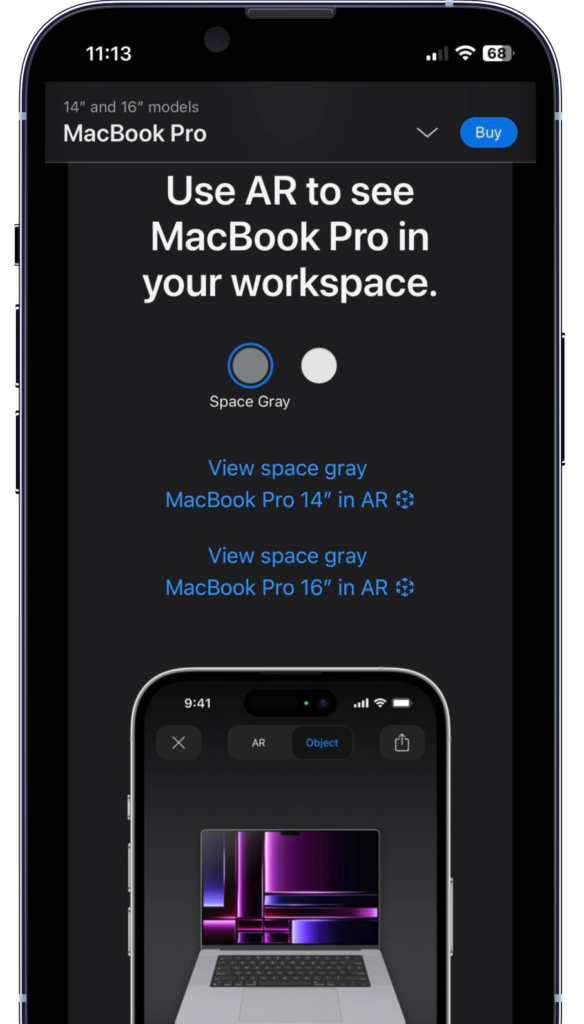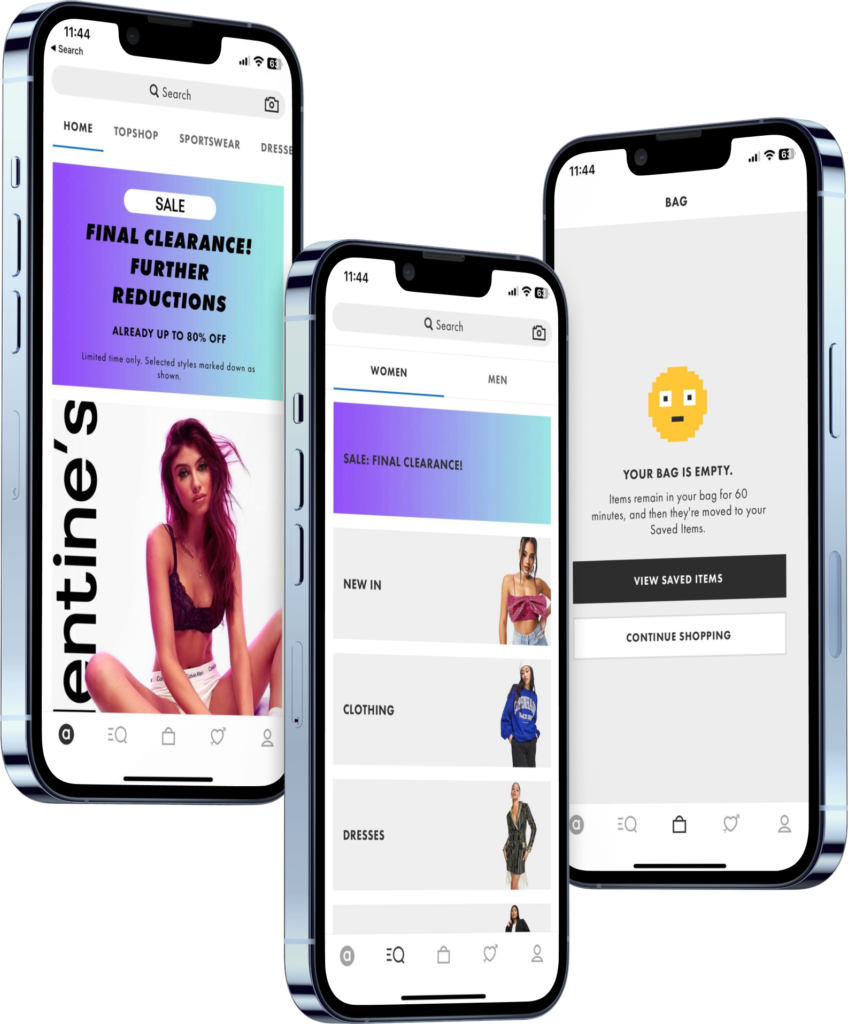Blog

Mobile applications are becoming an increasingly important part of e-commerce businesses as they provide customers with a convenient and engaging way to shop from their phones. Mobile apps offer features such as push notifications, product recommendations, exclusive discounts and offers, and easy checkout processes, making it easier for customers to find what they’re looking for quickly and conveniently.
By leveraging the power of mobile technology, companies can create an immersive shopping experience tailored specifically to their customers’ needs. This can help increase customer loyalty, drive sales, and boost brand recognition while increasing customer return rates. With these powerful tools, e-commerce businesses can expand their reach beyond traditional web storefronts into new markets where loyal customers await them.
Why is e-commerce the future
E-commerce is quickly becoming the future of retail. With the rise of technology, customers now have access to various services and products worldwide with just a few clicks of their mouse or taps on their smartphone screens. From apparel and home goods to electronics and car parts, e-commerce stores offer everything, making shopping more accessible and efficient than ever.

source: emarketer.com
One fundamental reason e-commerce is growing in popularity is its convenience. Customers no longer need to worry about traveling to stores or dealing with long lines; they can browse online, compare prices, read reviews from other customers, and purchase items from their homes. Additionally, e-commerce businesses provide customers personalized discounts and offers, which can further increase customer loyalty and provide them with an overall better shopping experience.
Another advantage of e-commerce over traditional retail is its ability to reach global audiences. By utilizing search engine optimization (for mobile app store search optimization – ASO for e-commerce) techniques such as keyword research and content marketing strategies, businesses can create customized campaigns targeting potential customers from different demographics and regions worldwide. This allows companies to tap into new markets where they may not have been able to before, helping them gain a competitive edge over other retailers in the industry.

In addition to expanded reach, e-commerce provides businesses with greater control over inventory management through automated systems like order fulfillment software which streamlines shipping tracking and returns management processes. This helps reduce costs associated with manual grinding while also providing customers with faster delivery times compared to traditional retail outlets. Furthermore, advancements in data analytics allow managers to gain valuable insights into customer behavior which they can use to better understand consumer wants/needs and tailor their products accordingly to maximum ROI (Return on Investment).
Overall, it’s clear that e-commerce has changed how we shop for products forever; it’s quickly becoming one of the most popular methods for finding what we need at competitive prices without having to leave our homes or offices. This is why it has become such an attractive opportunity for entrepreneurs looking for sustainable ways to grow their businesses digitally.
Important KPIs in e-commerce
To ensure that an e-commerce business is well-managed, tracking the proper KPIs (Key Performance Indicators) is essential. This will help companies understand how customers interact with their products and services to make informed decisions about where to invest their resources for maximum ROI.
The most important KPIs in e-commerce include:
- customer lifetime value (CLV) which measures the total cost of a customer over time;
- average order value (AOV), which calculates the amount spent on each purchase;
- conversion rate, which indicates how many visitors are converted into paying customers;
- return on ad spend (ROAS) which monitors the profitability of digital marketing campaigns.
Additionally, there are tracking customer satisfaction metrics such as bounce rates or cart abandonment.
In the age of digitalization, mobile applications have become an essential tool for many e-commerce businesses looking to increase customer loyalty and stand out from the competition. Mobile apps provide a convenient way for customers to browse, shop, and interact with companies on the go; this allows them to access services and products across multiple devices in different locations whenever they need them.
Mobile applications have become an essential tool for many e-commerce businesses, as they provide customers with a more convenient way to browse and shop on the go. Mobile apps also give companies greater control over customer engagement, allowing them to reach new audiences by using notifications, personalized recommendations, and other features.

Regarding mobile app KPIs for e-commerce, there are a few key metrics businesses should keep track of. First and foremost is the active user rate, which monitors the number of users who regularly open the app. This indicates how well the app engages customers over time and gives insight into which features perform best. Mobile app companies should also monitor session duration, which measures how long users stay in an application before exiting; this can help identify where improvements may be needed so that customers remain engaged for extended periods. Additionally, tracking a cost per install (CPI) helps businesses understand what their marketing efforts yield regarding user acquisition costs so they can optimize their campaigns accordingly for maximum ROI.
Other important KPIs to consider when developing a mobile app for e-commerce include the following:
- Shopping cart size (which measures the average order amount from each purchase transaction;
- Checkout rate (how often customers complete transactions)
- Retention rate;
- Referral rate (shows how well word-of-mouth is working in promoting the app or product within an existing user base).
All these metrics provide valuable insights into how effective a mobile app is at generating sales or providing a better shopping experience for customers.
Mobile app e-commerce advantages – what can you do in a mobile app that you can’t on a website
Mobile applications offer a unique advantage for e-commerce businesses, allowing them to reach customers in ways that websites simply can’t. With the right mobile app, companies can provide their customers with an enhanced shopping experience, as well as boost customer loyalty and return rates. In addition, mobile apps have advantages over websites such as faster loading times, push notifications, personalization capabilities using Flutter technology, and many more.
Shortening the path to purchase can contribute to lower shopping cart abandonment rates
Mobile apps are beneficial in this regard, as they can quickly take customers from the browsing phase to checkout with just a few taps. They also use automation, making it possible for customers to fill out forms without manually entering data. This helps speed up the purchasing process and minimizes the chances of customers abandoning their carts before completing the checkout process. Furthermore, mobile apps allow customers to save payment information, so they don’t have to re-enter their details each time they make a purchase, reducing checkout times and potentially increasing customer loyalty.
Push notifications can quickly increase retention
Push notifications are one of the best advantages offered by mobile applications that can easily increase customer loyalty. Mobile app notifications can provide users with real-time updates on sales or new items in an e-commerce store, which could increase sales by reminding them of products they may be interested in buying. Furthermore, users might be incentivized to shop more often if they receive personalized recommendations explicitly tailored based on their past purchases or browsing history. Mobile applications make such personalization possible through Flutter technology, helping businesses create customized experiences for each user and potentially boosting sales by creating a personalized connection between customers and e-commerce stores.

Combining AR with Unity is the best recipe for increasing session length
Combining Augmented Reality (AR) with Unity can be one of the best recipes for increasing mobile app session length, boosting customer loyalty, and boosting overall sales. AR technology is becoming increasingly popular among mobile applications as it allows users to interact with products in a virtual environment that can be experienced right on their mobile device screens through 3D images or videos.
Unity provides mobile developers with powerful tools to create compelling, realistic experiences that can take mobile apps to the next level by combining them with AR technology. Using Unity and AR together, mobile developers can create a fully immersive environment that encourages customers to explore and engage with products they are interested in buying. This allows customers to get a better look at how the product works or looks before actually purchasing it, which leads to higher levels of trust between customers and e-commerce businesses.

Apple’s store is a perfect example of using AR
Moreover, mobile apps created using Unity offer higher levels of personalization as developers can customize each user’s experience based on their past interactions and preferences. This makes customers feel important. After all, they are given exclusive deals because they shop at certain stores or use specific brands. Personalized mobile app experiences also help strengthen the connection between customers and businesses, leading to longer session lengths that could result in additional purchases down the road.
In addition, mobile apps created using Unity provide an enhanced user experience due to their superior graphics capabilities. By combining Unity with AR technology, mobile applications become more engaging with users as they allow for more realistic product simulations that give customers a clearer picture of what exactly they are buying before committing to a purchase. A better understanding of the product offers greater trust between businesses and their clients, leading to higher conversion rates overall.
Combining Augmented Reality (AR) with Unity is an excellent recipe for increasing mobile app session length. It boosts customer loyalty and overall sales numbers due to its ability to increase engagement through personalized experiences tailored specifically to each user combined with superior graphics capabilities provided by Unity’s development platform. Additionally, businesses that invest in this technology will have better luck when it comes to engaging target audiences consistently over time, leading towards increased returns in terms of customer loyalty and sales numbers in general.
Good UX is half of the battle
Good User Experience (UX) is crucial when it comes to creating successful mobile applications that bring in consistent returns for businesses over time. It is due to its ability to drive up engagement levels through improved visuals combined with intuitive navigation systems plus enhanced responsiveness explicitly tailored to different device sizes. All this leads to higher satisfaction rates from customers that help improve financial outcomes for businesses overall. Furthermore, mobile app notifications can play an even more significant role by keeping customers updated on the news related to your business while helping build excitement regarding upcoming events, leading to increased return visits over time, resulting in even better customer loyalty and overall sales numbers.

Asos has a strong UX/UI design with intuitive navigation, clear product information, and a visually appealing layout that enhances the user’s shopping experience.
Precision in user targeting
Mobile apps have revolutionized user targeting, enabling companies to target customers precisely without registering. In addition, mobile apps can collect and analyze user data in real time, allowing businesses to comprehensively understand their customers’ needs and interests. This data can then create tailored campaigns targeted explicitly at each customer.
With mobile apps, companies can track location and other data points like device type or OS version, allowing them to deliver highly personalized experiences fitted to the specific needs of each user.

In addition to tracking user data, mobile apps can also take advantage of machine learning algorithms that enable companies to better personalize their offerings based on previous purchases or interactions with an app. By collecting information about user behavior within an app, businesses can build up accurate models about how users interact by analyzing patterns across different touchpoints, such as search history or product categories viewed, to generate more intelligent recommendations for each customer.
Mobile apps can also track data points related to device hardware, such as battery levels or memory usage, which helps companies better understand how users interact with their products to optimize performance or fix bugs faster. In addition, mobile app analytics provide insight into how customers use your product and what features they find most valuable. It is useful when iterating on existing features or introducing new ones that fit into the overall user experience.
With this level of targeting accuracy, businesses can improve customer engagement over time while simultaneously increasing conversion rates due to higher quality leads being generated through targeted ad campaigns.
Why should you trust Flutter with e-commerce?
Flutter is quickly becoming one of the leading mobile app development frameworks for e-commerce businesses. The platform allows developers to create beautiful mobile apps in less time with a single codebase that works both on iOS and Android devices. In addition, it has powerful widgets, UI tools, APIs, and packages making it easier to build high-performance mobile applications.
Many notable companies use Flutter for their mobile apps, e.g., Alibaba, Google Ads, Credit Agricole, or Hamilton Music. Flutter is attractive because its zero-cost credit system enables developers to monetize their apps without being charged fees. It can also be used for other types of mobile applications, including games, business solutions, or health & fitness products. With its consistent updates and enhanced features, Flutter delivers a great user experience combined with fast loading times, making it an ideal choice when creating mobile applications for e-commerce businesses.
If you are interested in why Flutter works well with e-commerce, we’ve already written about it in greater detail.
Conclusion
Mobile applications are becoming increasingly popular for e-commerce businesses due to their many advantages, such as improved customer engagement and increased conversion rates. In addition, mobile apps provide customers with a more interactive and personalized experience which can be further enhanced via features like push notifications or geolocation tracking. Flutter is an ideal platform for mobile app development due to its powerful UI tools, making it easier than ever before for companies to create successful mobile applications that meet their business needs. With mobile apps being so crucial in today’s digital world, investing in their development could help your e-commerce business reap great rewards in the future.
Get latest insights, ideas and inspiration
Take your app development and management further with Codigee
Let's make something together.
At Codigee, we value transparency, efficiency, and simplicity. No overengineering. No wasted time.
Just straight-up execution.
We are obsessed.
Every billion-dollar company started with one decision, one step, one iteration. The key? Taking action and executing fast.

